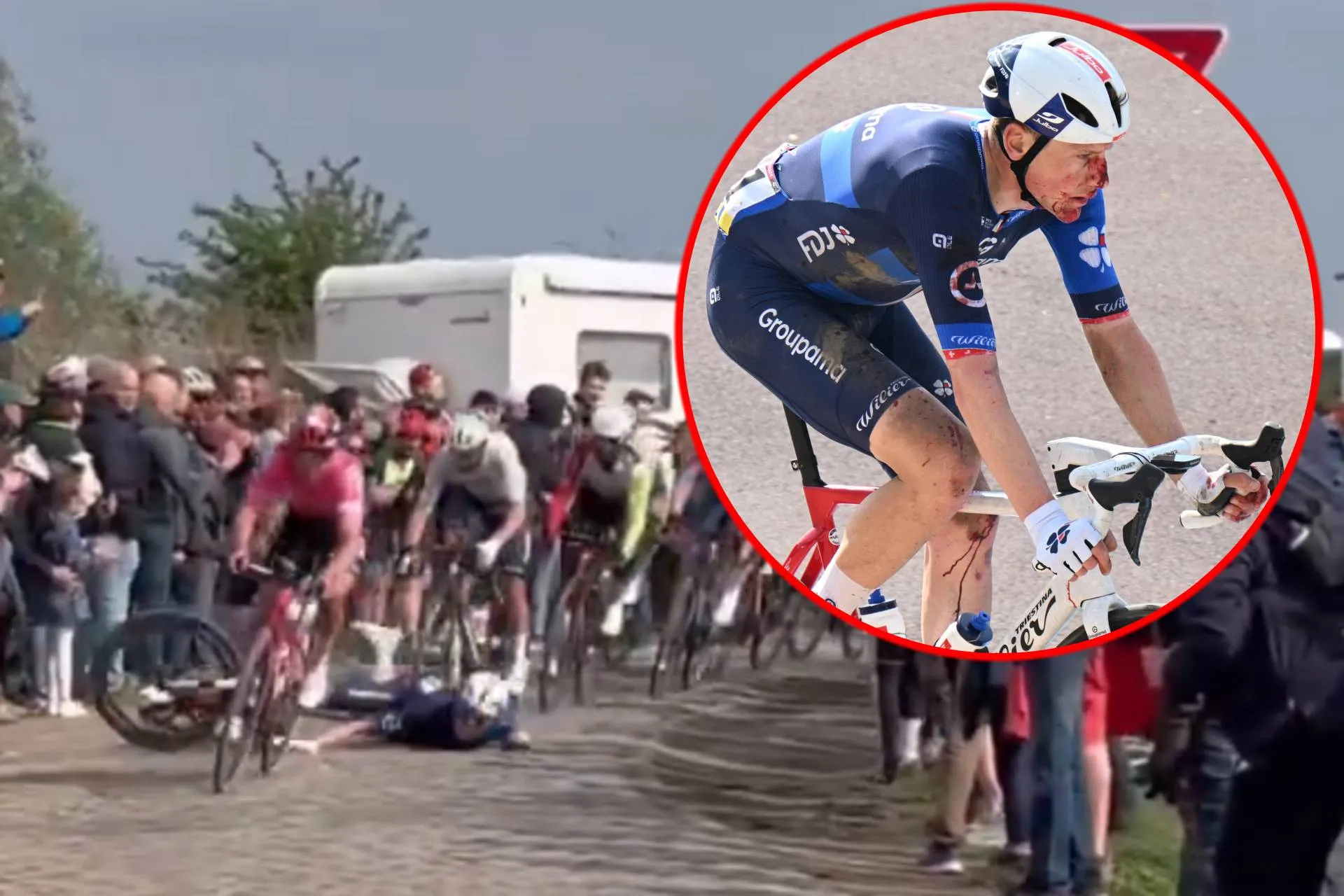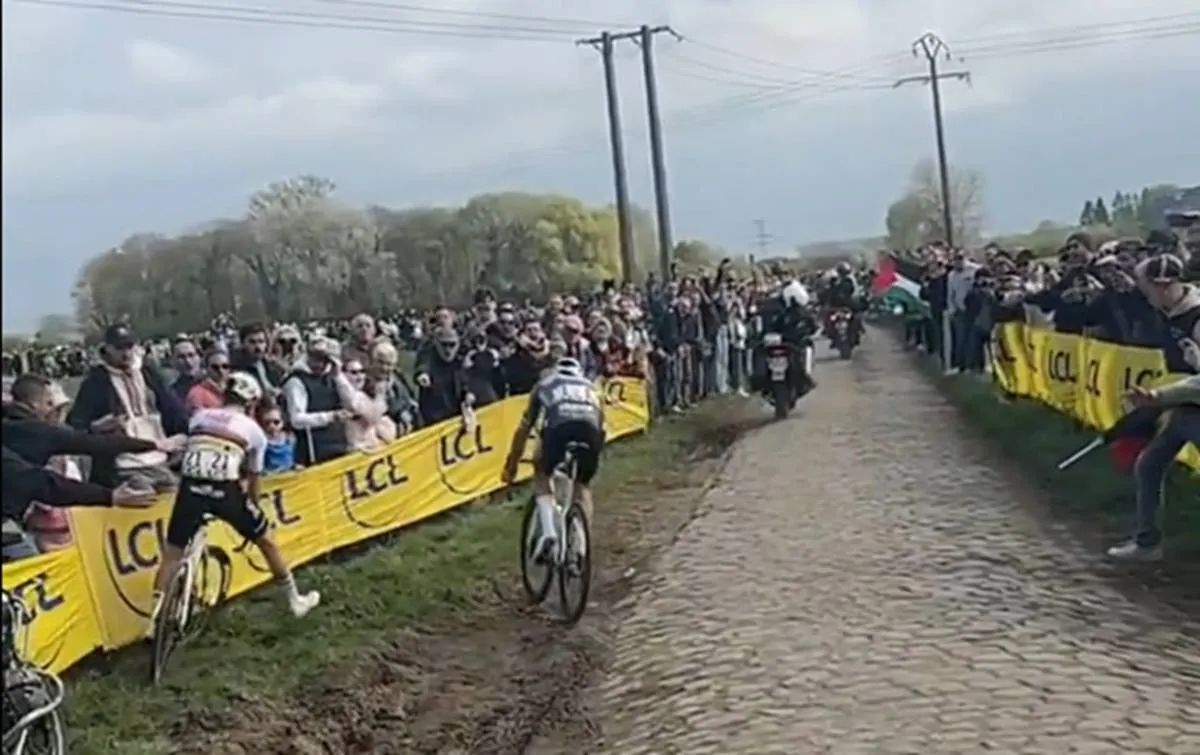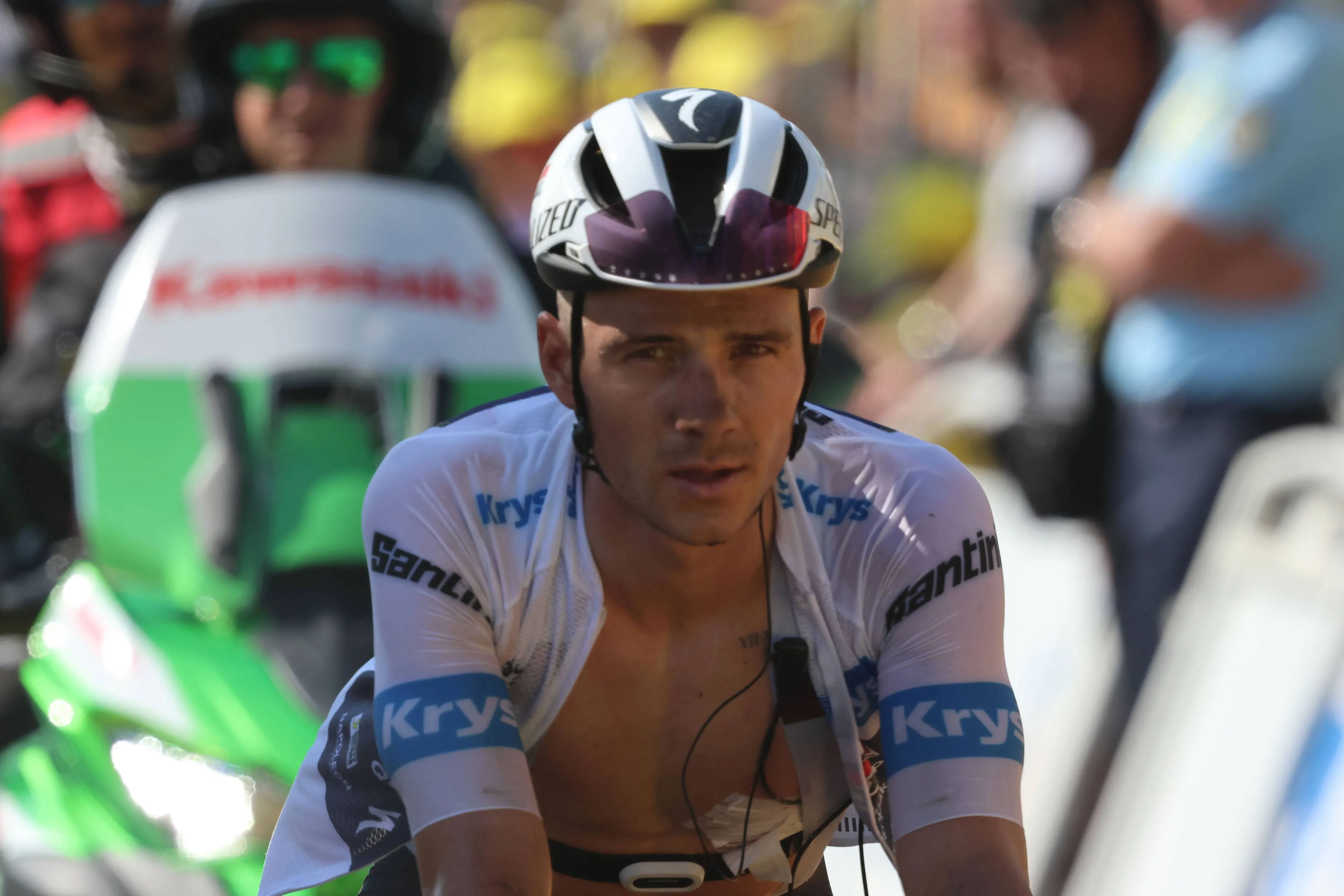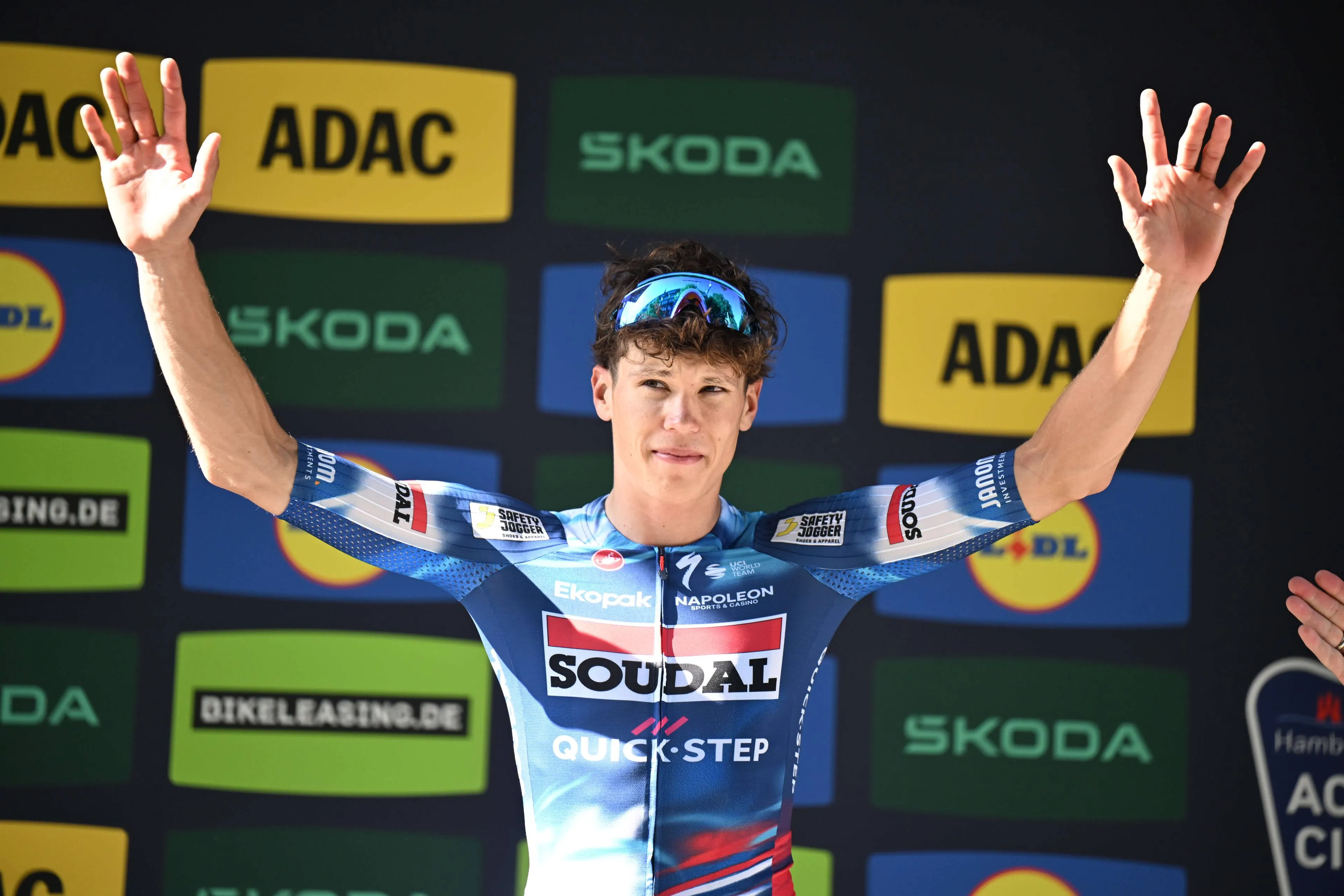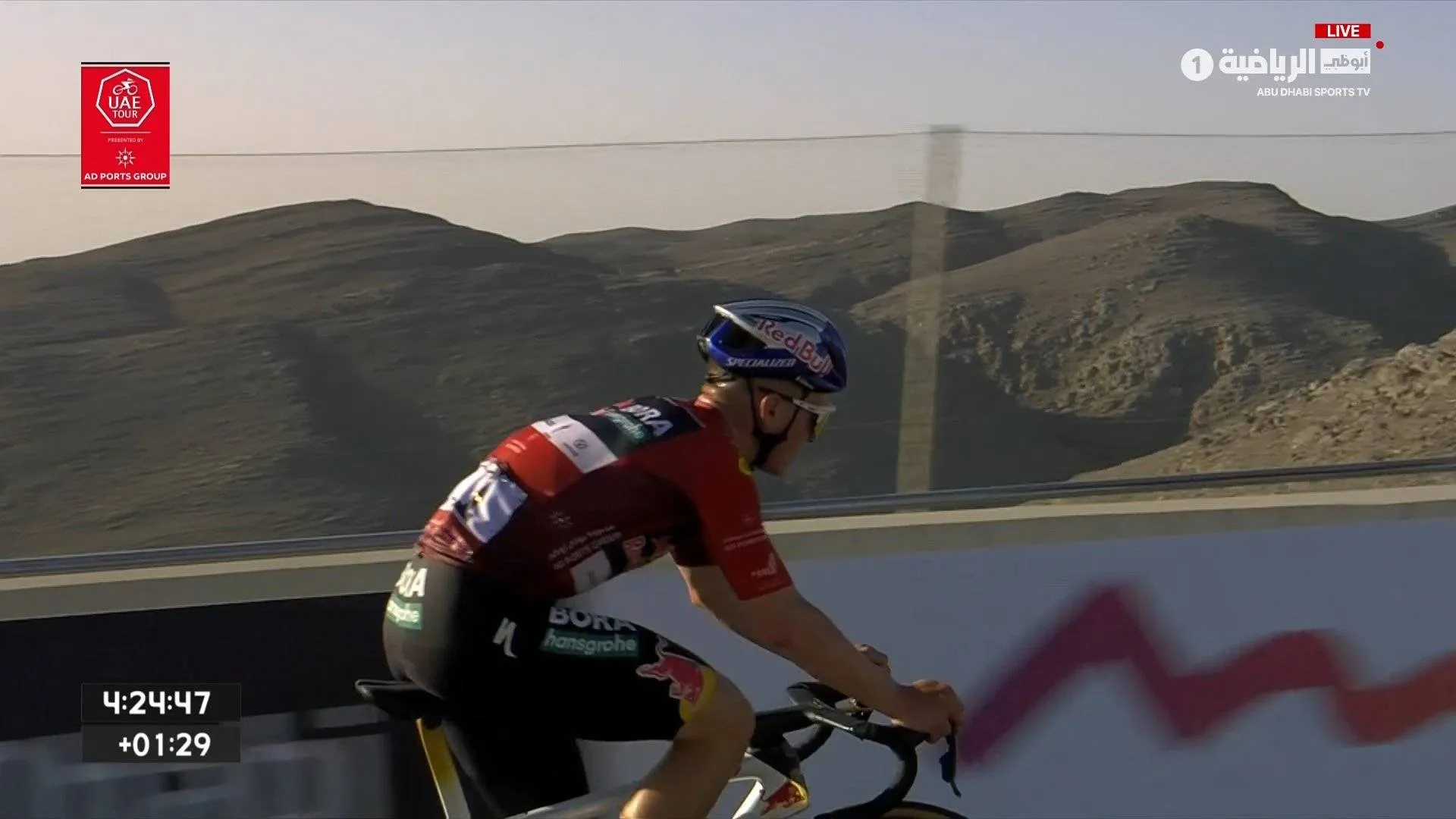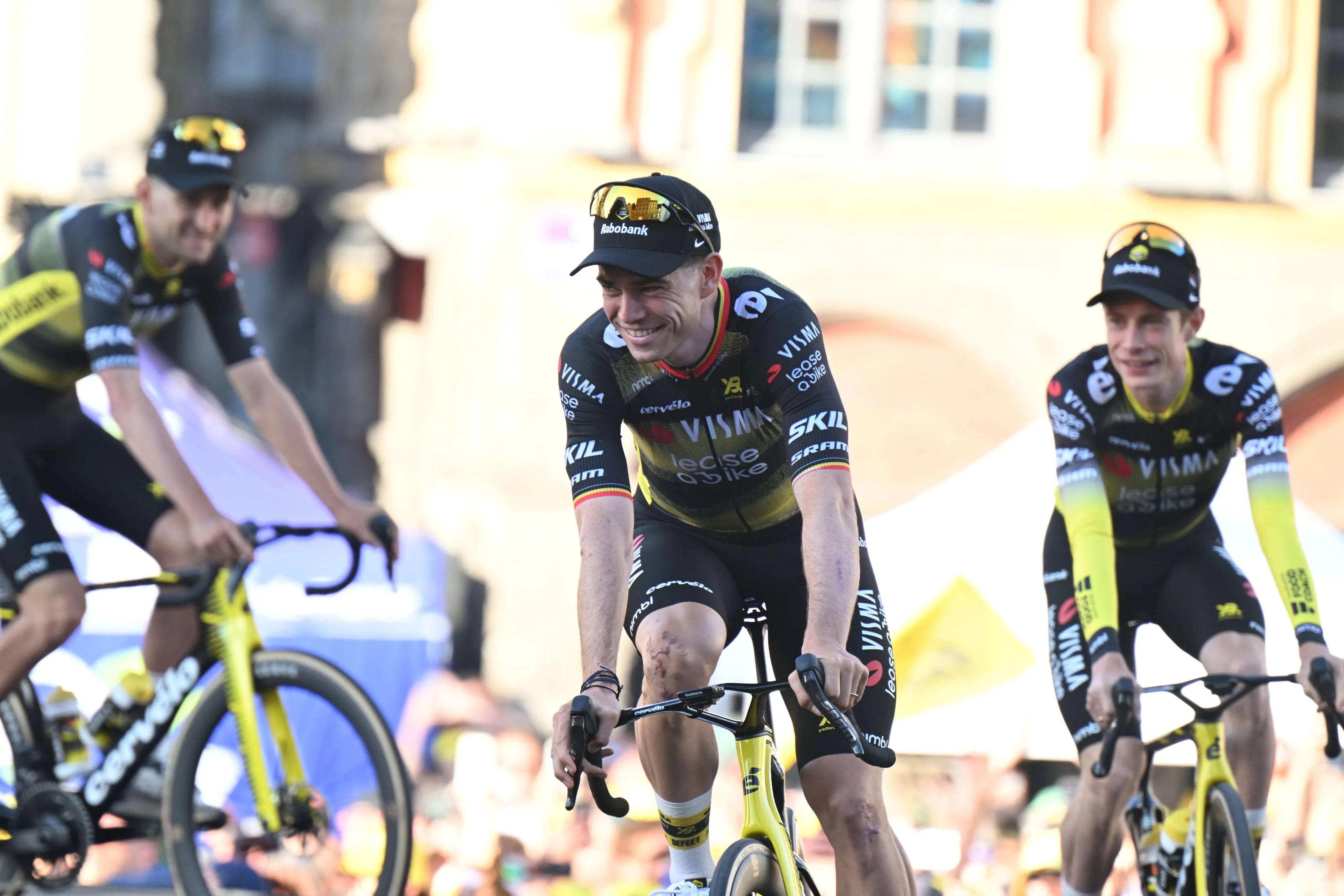OPINION | If winning over Mathieu van der Poel evokes hatred, we are the problem
CyclingMonday, 14 April 2025 at 13:00
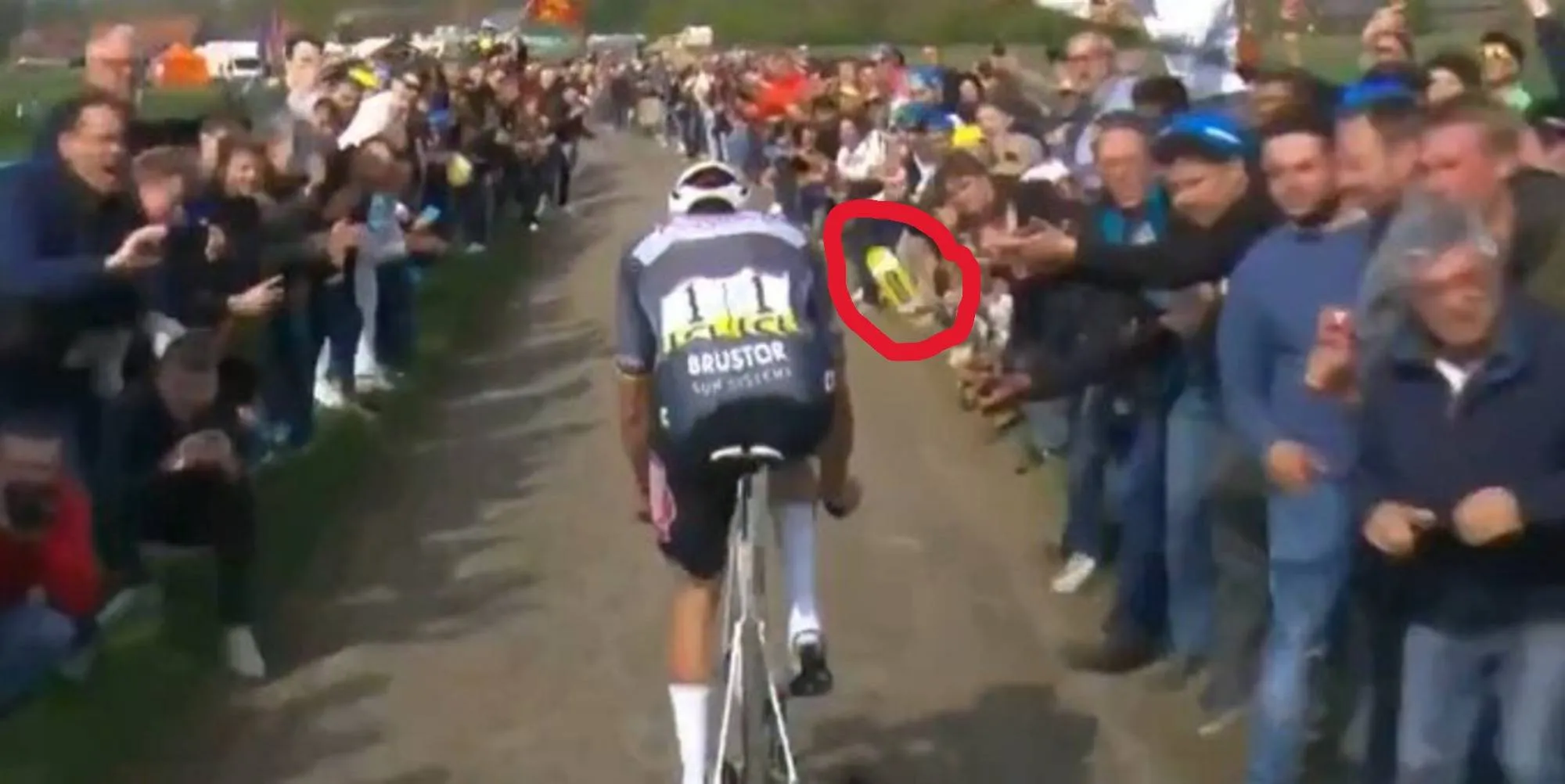
A dangerous trend is emerging in cycling. A handful of spectators, dressed in their idol's colors, or just barely, are behaving more like hooligans than fans. Mathieu van der Poel is spit on, urine is thrown at him, and at the latest edition of Paris-Roubaix, even now a full drinking bidon has flown toward his face. This is no longer an unfortunate incident. There is a pattern to it.
How can this happen? How is it possible for someone to post themselves along the cobblestones of northern France on a Sunday afternoon, not to watch racing, but to hurt a rider?
If you look at the roots of racing in Flanders, you won't find hate there - you will find love. Cycling is deeply embedded in the Flemish fabric. On days of the great classics, families gather around the table. Hours are spent eating, drinking and, above all, watching the race.
Read also
But just there, at those tables, camps arise. Literally. On one side the supporters of Wout van Aert, on the other the admirers of Mathieu van der Poel - even if they are Belgian. What begins as banter becomes bitter seriousness for some. The fondness for a rider is no longer a preference, but an identity. And instead of being a Wout fan or Mathieu fan, one becomes purely anti-Wout or anti-Mathieu. Hatred of the other gets the upper hand.
Tension is also running high in sports bars and canteens. You hear jeers when a rider falls. Cheers when someone else punctures. And under the surface something bubbles up that no longer has anything to do with sports. A deep-seated frustration seeks an outlet - and finds it in the other person's misfortune.
On top of that: the Flemish media are fanning the flames without really realizing it. The biggest sports channel within Flanders has been playing with the thin line between pride and framing for years. "Van der Poel is not a Dutchman," it is said. "He is one of us." José De Cauwer emphasizes it again and again. Van der Poel just won Paris-Roubaix for the third time in a row and immediately there is the ironic comment, "And not a day in his life lived in the Netherlands lol." It is a remark meant as a joke. Sure it is, but not everyone understands it that way. Some are struck in the heart by it. They feel that the rivalry between the Dutchman and the Belgian is bottled up even more. And hate even more.
Read also
Because what Mathieu van der Poel represents is often at odds with the image of Wout van Aert. One is the clever stylist, the other the taciturn hard worker. One exudes lightness and frivolity, the other bad luck and tragedy. Those who feel unheard in life are more likely to recognize themselves in the underdog. And he who projects himself into his hero, sees in his opponent an enemy. At that moment, sport stops - and something more toxic begins. The richly flowing beer begins to reek of something rotten. Hatred of the other.
Can the tide still be turned? Perhaps. But not without courage. The media must revise their language. Organizers must enforce. Ex-riders and commentators must set an example. And we, the supporters, must learn to look again - at the race, not at each other.
Because when Tadej Pogacar wins, it stays quiet. Then the squabbling falls away for a moment. No swearing, no spitting. No family celebration that derails into bickering over course. Everyone remains silent. Because no one feels hurt. Because no one has really lost.
Read also
This is the wry proof of what sports sometimes manages: only when an outsider wins do we find peace. Pogacar wins, and the hate doesn't budge. Everyone gags - literally and figuratively. But that's not how it should be.
When Mathieu van der Poel wins, we should feel the same as when Pogacar wins. Joy. Whether we are Flemish or Walloon. Wonderment. Whether we are Dutch or French. Respect for a rider who went to extremes. Whether we are Slovenians or Americans. No resentment, no envy, no reflexive indignation because "the Dutchman" was stronger again.
That venom has to come out. That bigotry that won't tolerate anyone else winning. That nationalism in disguise. That hatred masquerading as sports passion. Because next time it might be Wout. Or Pogacar again. Or someone else.
But as long as winning from one automatically means losing to the other - not in the results, but in the heart - it is not the sport that fails. Then it is us.
Opinion: Pascal Michiels
Read also
claps 84visitors 5
Just in
Popular news
Latest comments
- Fantastic climb by Tiberi. Let’s see more of this from him.Pedalmasher19-02-2026
- Loved watching this finale. Brutal climb, looked like a brand new Middle Eastern Alpe d'Huez with those switchbacks on the mountain edge. So much grit on Del Toro's face. I really thought he might catch Tiberi with about 1500m to go. Great stage.antipodeanpedalfan19-02-2026
- You’re expecting cycling to stay immune from this type of conjecture when the worlds’ most watched and listened to figure spouts out similar unsubstantiated crap daily? Most people just follow bad example because it’s a lot easier than figuring out a good one. Anyway, it could be anything, perhaps he just knew Andrew too well, or Sir Jim didn’t want him helping any more of those pesky foreigners and paid him off ;-) He doesn’t seem the Epstein type but if that was it, kudos to him for being practically the only one to resign BEFORE being found out. I find it very concerning that no-one has much to say about any of these people who keep at it until they just can no longer claim their innocence. Who did they learn from, Lance?Mistermaumau19-02-2026
- If you are going to make comments like that, back it up with proof. Otherwise keep them to yourself.Searider18-02-2026
- In the same place as the outcry over boys vs girls losing weight, which, is in about the same place as boys vs girls getting hit, or abused.Mistermaumau18-02-2026
- Haha.awp18-02-2026
- That's a little extreme, you take wins where you can get them.awp18-02-2026
- Ironic no, a British boss of British companies has no problem outsourcing a large proportion of jobs to foreigners and then complains a proportion of that proportion actually lives in the country. And do you expect if you leave that no-one will take your spot?Mistermaumau18-02-2026
- Slowly slowly the youngsters are making more and more of an impact.Mistermaumau18-02-2026
- I agree for certain situations, especially camps and popular training destinations but teams can’t manage or afford to chaperone all their riders all the time. Off season they still have to train and want to be home as much as they can (this is also where they are easiest to « catch »). On the other hand, if riders like Tadej accept « invitations » to ride on certain roads just for promotional purposes like in Gran Canaria they are also responsible for any trouble it attracts, you can’t expect people to stay away once you deliberately notify where you’re going to be and when. SeemsMistermaumau18-02-2026
Loading
Write a comment


